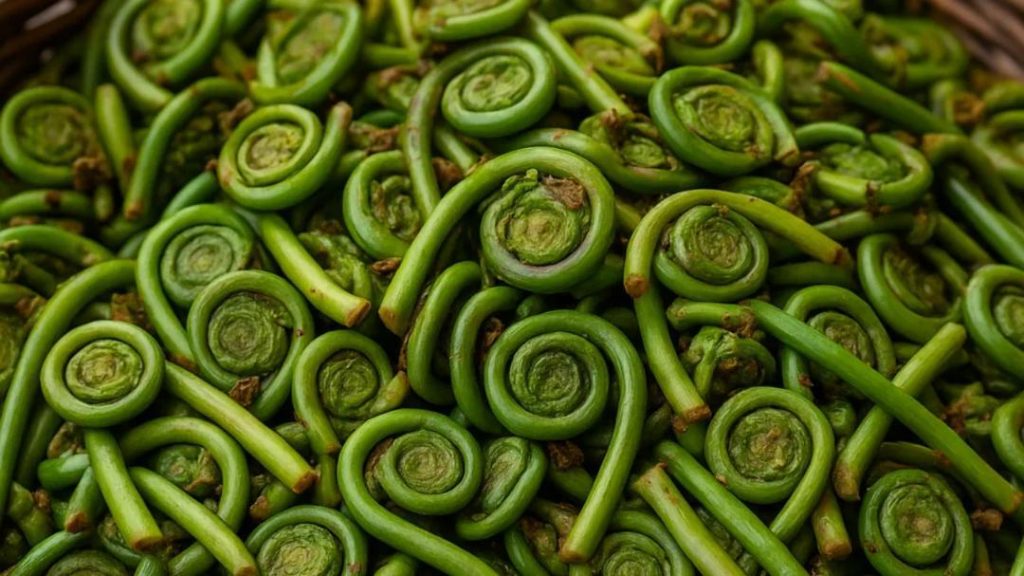
Lingad, a Monsoon Fern, Boosts Immunity and Bone Health
As the monsoon rains bring life to the parched earth, the Himalayas come alive with a burst of greenery. Among the lush foliage, one special treat catches the eye – the Lingad, or fiddlehead fern. This young, coiled shoot is a delicacy foraged during the monsoon season, prized for its unique flavor, rich tradition, and impressive health benefits. In this blog post, we’ll delve into the wonders of Lingad and explore how it can boost immunity and support bone health.
What is Lingad?
Lingad (Diplazium esculentum) is a type of wild fiddlehead fern that grows in the Himalayas. Also known as Lengdu, Dhekia, or Nigro, this edible fern is harvested when it’s still young and curled, before it matures and becomes fibrous and unfit for cooking. The name “Lingad” is derived from the Nepali word “linga,” meaning “curl” or “coil,” which refers to the fern’s characteristic curled shape.
Culinary Significance
Lingad has been a part of Indian cuisine for centuries, particularly in the Himalayan regions of Nepal, India, and Bhutan. The fern is often used in local dishes, such as soups, stews, and stir-fries, where its unique flavor and texture are prized. In Nepal, Lingad is a popular ingredient in traditional dishes like “Lengdu ko Achar” (a fermented pickle) and “Dhekia ko Kothe” (a type of flatbread).
Nutritional Profile
Lingad is a densely nutrient-rich food, packed with vitamins, minerals, and antioxidants. It’s an excellent source of:
- Fiber: Lingad contains both soluble and insoluble fiber, which can help regulate digestion, lower cholesterol levels, and support healthy blood sugar levels.
- Vitamin C: This essential vitamin is crucial for immune function, skin health, and iron absorption. Lingad is an excellent source of vitamin C, making it a great addition to your diet during the monsoon season.
- Calcium: Lingad is an excellent source of calcium, which is essential for bone health, muscle function, and nerve function.
- Potassium: This essential mineral helps regulate blood pressure, supports healthy heart function, and aids in muscle recovery.
- Antioxidants: Lingad contains a range of antioxidants, including flavonoids and phenolic acids, which can help protect against oxidative stress and inflammation.
Health Benefits
The unique combination of nutrients in Lingad makes it an excellent food for boosting immunity and supporting bone health.
Boosting Immunity
Lingad’s high content of vitamin C, antioxidants, and other nutrients makes it an excellent immune-boosting food. The fern’s antioxidant properties can help protect against oxidative stress, which can weaken the immune system. Additionally, Lingad’s vitamin C content can help support the production of white blood cells, which are essential for fighting off infections.
Supporting Bone Health
Lingad’s calcium content is particularly beneficial for bone health. Calcium is essential for building and maintaining strong bones, and a deficiency can lead to conditions like osteoporosis and osteopenia. Lingad’s calcium content can also help reduce the risk of fractures, particularly in older adults.
Conclusion
Lingad, the wild fiddlehead fern, is a culinary treasure that’s rich in tradition and nutrients. This unique food is an excellent addition to any diet, particularly during the monsoon season when immunity and bone health are crucial. With its impressive nutritional profile and range of health benefits, Lingad is definitely a food worth trying.
News Source:





